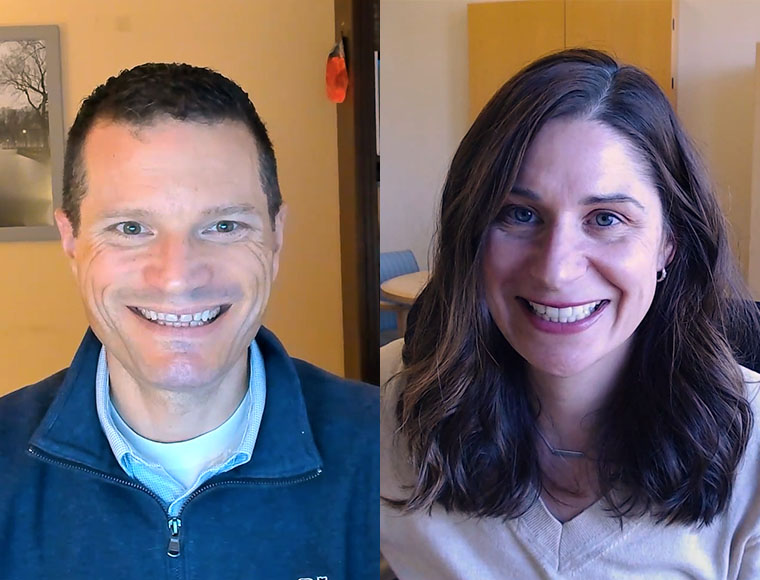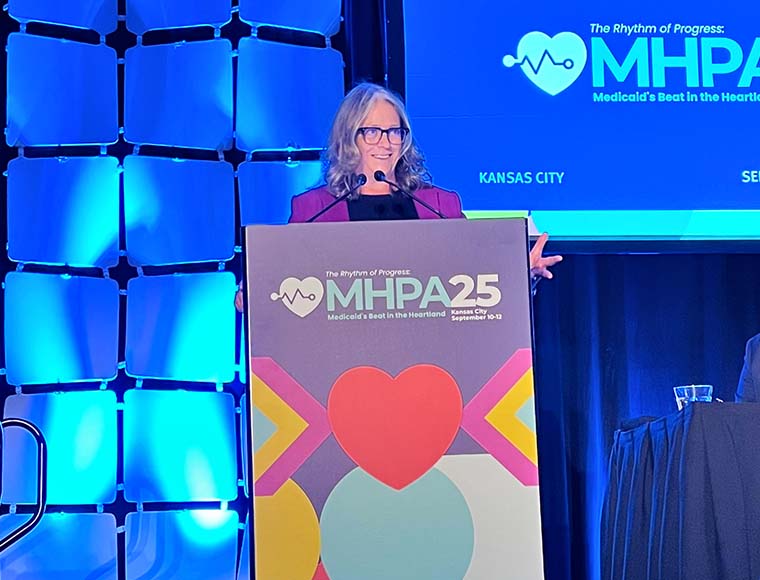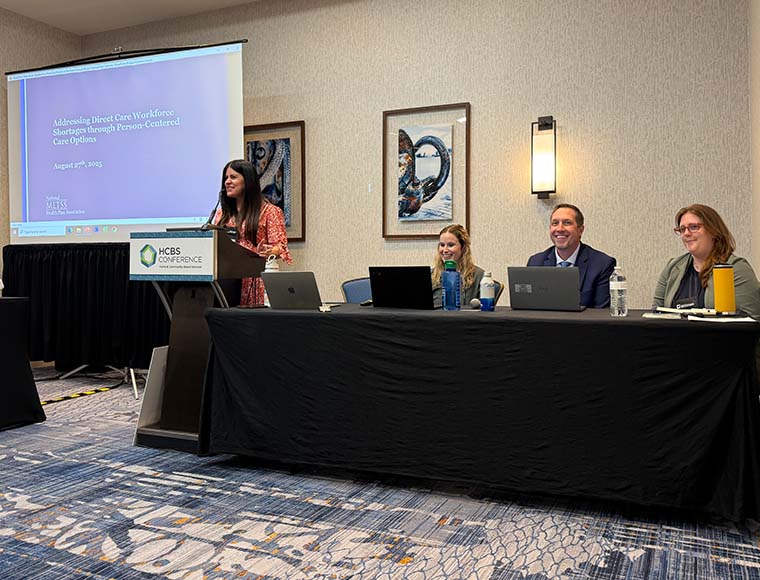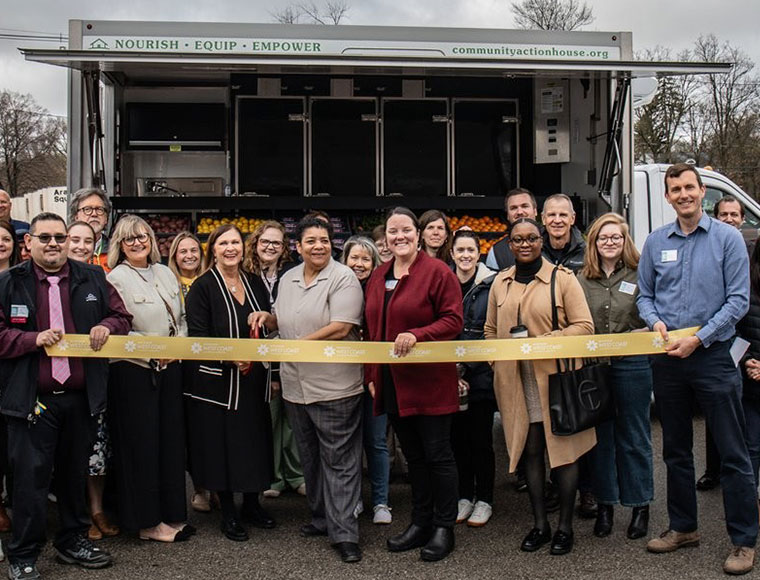Last month, I presented at the Medicaid Health Plans of America (MHPA) association conference with my colleagues. MHPA represents over 130 health plans serving Medicaid enrollees.1 For almost three decades, MHPA has utilized advocacy and research to support policy solutions promoting high-quality health care.
The MHPA annual conference serves as an opportunity for industry leaders to share insights and outline action steps. This year’s theme was “Leading Medicaid forward”, focusing on progress points and next steps in topics including maternal health and redeterminations. Breakout sessions were characterized by four tracks:
- Equity
- Managed long-term services and supports (LTSS)
- Social drivers of health
- Policy
Opening general session: leading Medicaid forward
The conference opened with UnitedHealthcare’s “mission moment” which was led by my colleague Catherine Anderson, Senior Vice President of Health Equity Strategy for UnitedHealth Group. She spoke with LTSS member William Griffiths who is enrolled in the UnitedHealthcare Community Plan of Massachusetts.
This session featured William’s journey as a current Medicaid member following a stroke. With the help of Medicaid Managed Care, William is able to live in his own apartment with the support of a care team. He commented, “If it weren’t for Medicaid Managed Care, I would still be in a nursing home.” This session went on to highlight the importance of dignity and centering members’ wishes and preferences to guide care planning.
Policy and system changes to move the needle on maternal health outcomes
This session focused on policy trends related to doula and postpartum coverage extensions with the goal of improving health outcomes for parents and children. Speakers highlighted collaboration between UnitedHealthcare Community & State and The Doula Network – specifically the progress made in improving access to doula care for Medicaid members. Speakers also highlighted a recent initiative in Florida to reduce unnecessary c-sections through provider education and the provision of doula coverage to members. The session concluded with considerations for future policy development in maternal health.
Leading the way: how states and plans are innovatively addressing nutrition-related needs
As state Medicaid programs and managed care organizations (MCOs) continue to explore solutions to address whole-person health needs, food and nutrition insecurity remains a challenge.
In this session, I was joined by Parinda Khatri, PhD, Chief Executive Officer of Cherokee Health Systems and Amanda Van Vleet, Deputy Director of Population Health for the North Carolina Department of Health & Human Services. Our discussion provided insight into Medicaid’s role in offering nutrition-related support and the role of MCOs in innovatively addressing nutrition-related needs.
We highlighted food and nutrition insecurity as a significant driver of poor health outcomes for individuals with nutrition-related diagnoses such as diabetes. Our proposed solutions centered around screenings, referrals, data integration and meal delivery funding options. Specific action steps included leveraging waivers, partnering with community-based organizations and encouraging trusted intermediaries and bridge organizations to assist with role clarity.
General session: a discussion with CMCS Director Daniel Tsai
The keynote was led by Daniel Tsai, Deputy Administrator and Director of Center for Medicaid and CHIP Services (CMCS) at the Center for Medicare and Medicaid Services (CMS). Deputy Administrator Tsai noted recommendations to improve the workforce shortage and identify which redetermination learnings and flexibilities should be made permanent. These recommendations included:
- Improving procedural disenrollments to reduce churn
- Auto-enrolling eligible children in CHIP membership
- Using financial eligibility documentation such as SNAP to establish Medicaid eligibility
- Using newer outreach tools such as text messaging
- Taking an ‘all-hands-on-deck’ (providers, MCOs, CBOs) approach to communication about renewals
Following the address, a moderated discussion outlined progress on Medicaid priorities, remaining challenges and recommendations for the collaboration between MCOs and CMS to ensure accessibility of high-quality health care.
General session: a conversation with state Medicaid directors
During this session, I listened to current Medicaid Directors of Georgia, Maryland and Oklahoma as well as a former Texas Medicaid Director discuss how state Medicaid programs work to improve health equity, address social drivers of health and manage LTSS. The directors highlighted their individual efforts to improve the quality of care for underserved populations.
Making redetermination learnings permanent, collaborating with local officials and investing in outreach were noted as crucial steps to improve access to quality health care. One panelist commented, “It doesn’t matter how many news interviews you do or posters you print, it all comes down to human outreach.”
Medicaid redeterminations and unwinding: a conversation with Maryland Medicaid and HealthChoice MCOs











